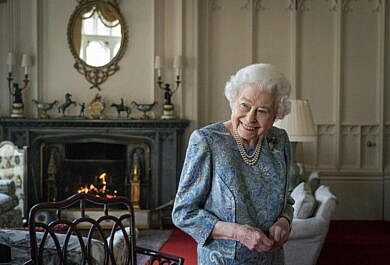Global elites, business leaders, and politicians from all over the world converged on Davos, Switzerland this week for the annual World Economic Forum conference.
Summary
Global elites, business leaders, and politicians from all over the world converged on Davos, Switzerland this week for the annual World Economic Forum conference where political and business leaders come together to hobnob and discuss major global issues.
- The war in Ukraine has dominated the conversation at this year’s conference. Ukraine’s First Lady Olena Zelenska delivered a surprise speech urging world leaders to do more to support her country.
- Finland’s leader vowed to support Ukraine in years to come, while other European leaders pressured Germany to allow shipments of tanks to be sent to Ukraine.
- Western sanctions prohibited Russian officials and oligarchs from attending the confab, forcing business leaders attending the forum – but not Elon Musk, who apparently was not invited to the forum despite his claims – to turn elsewhere for new markets for energy and food.
- Tensions between the U.S., China, and Europe over trade, technological decoupling and industrial policies like President Joe Biden’s electric-vehicle subsidies from the so-called Inflation Reduction Act – which European leaders view as a threat to their green industries – also dominated this year’s forum.
- This year’s Global Risk Report from the World Economic Forum offered a “bleak outlook” for the world in 2023. The report identified climate change as the biggest challenge to the global economy, but a cost-of-living crisis is the most immediate challenge facing world leaders.
- Although the World Economic Forum claims to prioritize climate change, that did not stop more than 1,000 private jets, which are “the most polluting form of transportation per passenger per kilometer” from flying into Davos for the conference. The total emissions generated by last year’s forum were the equivalent to those produced by 350,000 cars in a week.
- The Swiss ski town of Davos is the traditional setting of the annual World Economic Forum meeting. At least 52 heads of state or government (mostly from Europe) and nearly 600 CEOs were expected to attend the 53rd annual meeting.
- The World Economic Forum was founded 52 years ago by Klaus Schwab, who still runs the organization in his mid-80s. Politico Europe reported the succession question has been a hot topic at this year’s conference, but many expect Schwab will run the organization until he dies.
- World leaders or business tycoons could take over, but much of the succession gossip has focused on his two children, who both work for the WEF. WEF has numerous special privileges built in for Schwab and his family. At least one WEF strategic partner is worried the entire organization “could fall apart if they don’t sort it out.”
- The World Economic Forum has become the epicenter of online theories in recent years that believe the WEF involves “a group of elites manipulating global events for their own benefit.” “The Great Reset” – the 2020 conference theme that “envisioned sweeping changes to how societies” would come back from Covid – has become a shorthand for these alleged efforts.
- As conservative commentator Erick Erickson put it: “Lots of conservatives get worked up by the “globalists” and many conspiracies abound. The reality is that Davos is a support cult of rich atheists who worship at the altar of climate change. They are impotent in the face of democratic resistance against them. There’s no need for conspiracy theories. They are very open and transparent about what they want…influence.”
- Erickson continued, “Davos exists, in part, for global conversation and cooperation, which is good. But it also exists because the expert prescriptions of the elite have so often failed and failed to be implemented and they go to Switzerland to console themselves that, gosh darn it, they really are smart and sophisticated if only the rubes of democracy would listen to them.”
![]()
- The New York Times wrote about the buzzword du jour at Davos: “polycrisis.” The term polycrisis has been repeated often at WEF meetings and publications, referring to the current morass of issues confronting governments nicknamed the “five gathering storms”: inflation, the war in Ukraine, a global food shortage, climate change, and global economic slowdowns.
- CNN covered United Nations Secretary General António Guterres’ bombastic address to the WEF, where he accused fossil fuel producers of “racing to expand production, knowing full well that their business model is inconsistent with human survival.” Guterres had no comment, however, about the emission-spewing private jets that transported most attendees to Davos.
- The World Economic Forum’s annual report labeled the decade “the turbulent twenties,” according to Axios. The forum surveyed top economists, two-thirds of whom believe the global economy will likely enter a recession in 2023.
![]()
- Breitbart covered reports of skyrocketing demand for prostitutes and escorts in Davos during the WEF conference. A 2020 exposé from The Times called Davos a “den of prostitution and predators” with seemingly as many escorts descending on the ski town for the WEF conference as there are business leaders and politicians.
- One topic of discussion at Davos was how to “hit back” at “right-wing” groups and “disinformation,” according to Fox News. Rather than recognize things they have done to alienate the public, one panelist blamed the “deterioration of trust” in non-governmental organizations and nonprofits on “right-wing groups” that have associated nonprofits with Bill Gates and George Soros, two of the most prolific funders of NGOs in the world.
- National Review’s Jim Geraghty took the WEF’s embrace of the term “polycrisis” to its logical conclusion: “Boy, that grim assessment makes it sound like the world’s most powerful and influential people are doing a really lousy job, huh?”
- Geraghty pointed out for all the talk about the so-called “five gathering storms,” Davos attendees seemed much more eager to criticize “you, your sport-utility vehicle, your house, your diet (specifically the meat you consume), your political views, and your doubt that globalization has turned out to be that win-win that Davos insists it is” than tackle the actual global problems the world’s elites could theoretically resolve.
© Dominic Moore, 2023





